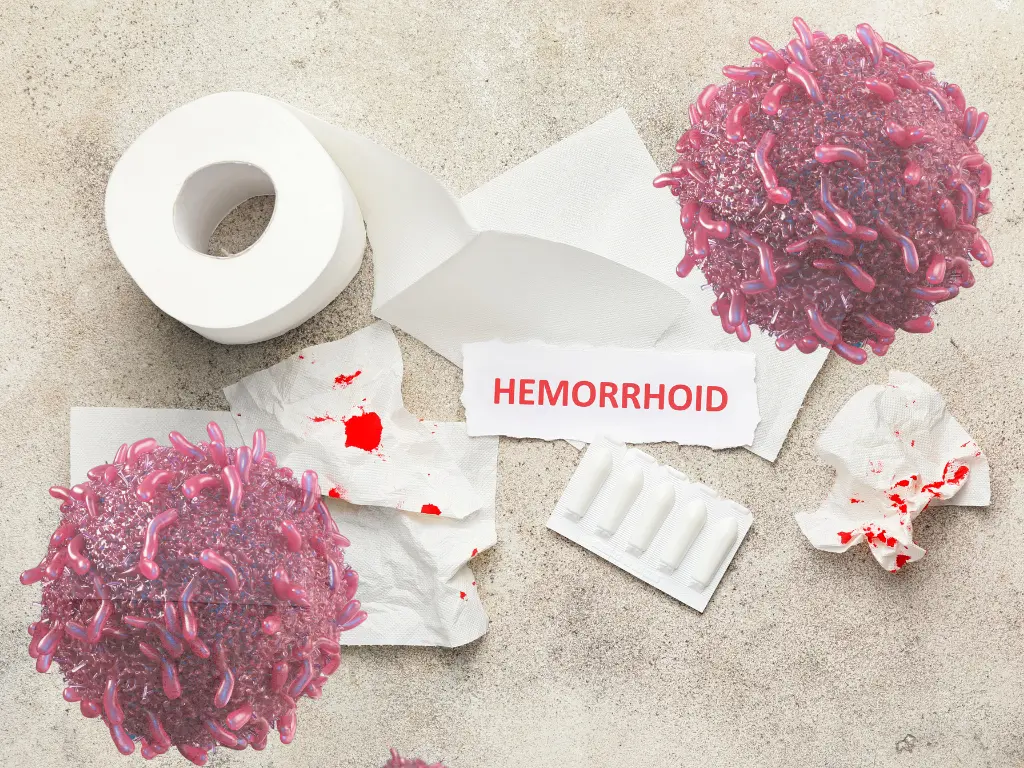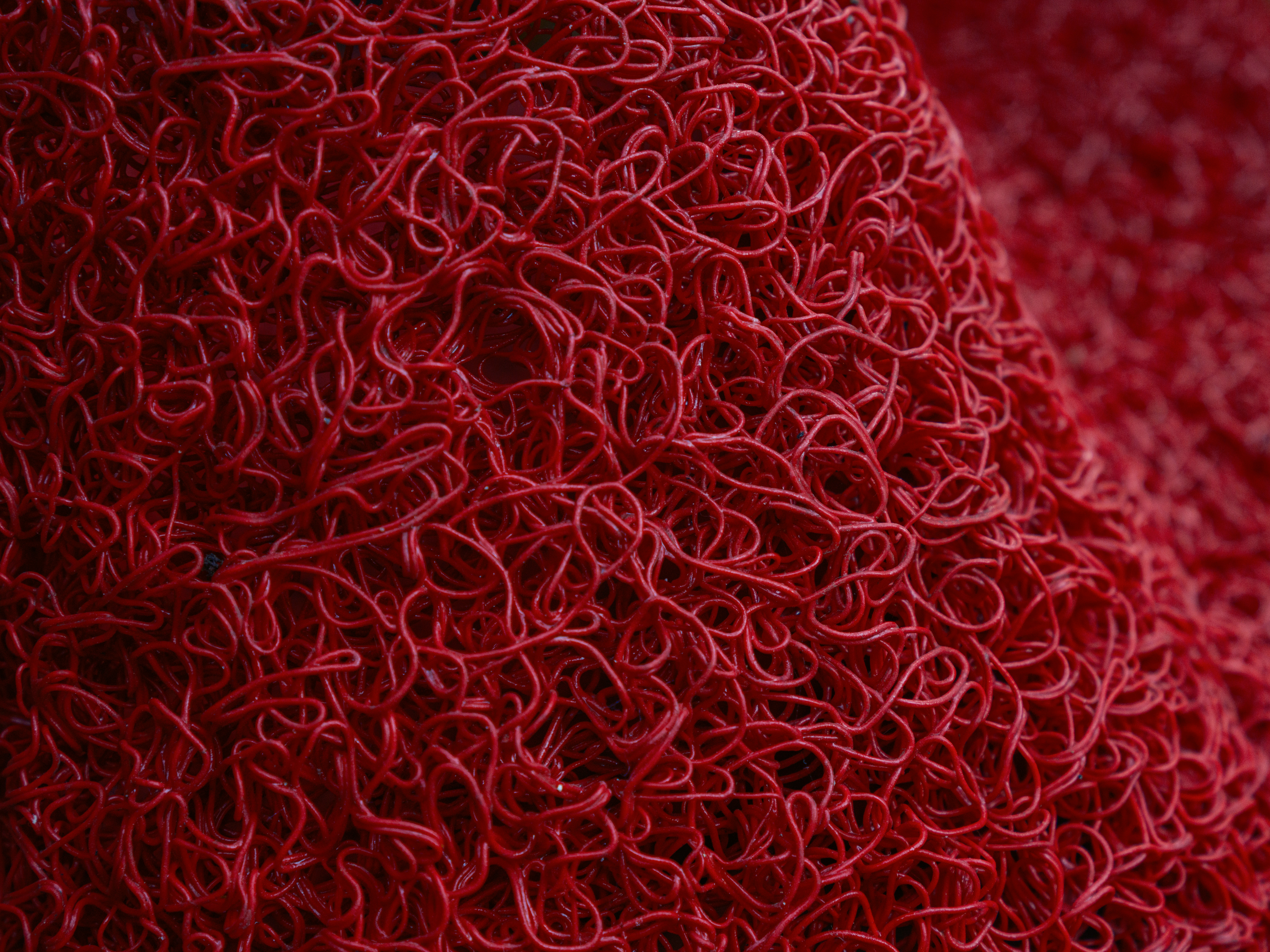I’ll never forget the day I was wiping after using the toilet and first noticed blood on the toilet paper. My first thought was, “Oh crap … do I have cancer?” So, I know very well the kind of mental tailspin you may be in if you are experiencing similar symptoms.
Take a deep breath. Hemorrhoids are really common; in fact, they affect about half the population above age 50. Plenty of people under the age of 50 also get them. So, statistically speaking, there is a really good chance you have hemorrhoids rather than cancer.
In this post, I am going to go over the symptoms of anal cancer vs. hemorrhoids to help you tell them apart. I will also explain how both conditions are diagnosed and treated. So, keep breathing in and out, try not to worry, and let’s dive in.
What is Colorectal Cancer?
First of all, usually when we talk about “anal cancer,” we are referring specifically to colorectal cancer. There is actually another condition called “anal cancer,” but it is not nearly as prevalent as colorectal cancer. So, in this post, colorectal cancer is what we will focus on.
Colorectal cancer is cancer of the large intestine. Another name for it is “colon cancer.” Like other forms of cancer, colorectal cancer progresses through a series of stages.
Here is the good news. If you can catch colorectal cancer early, it can often be cured. After you have had colorectal cancer, you need to screen yourself regularly to catch potential recurrences as quickly as possible.
What are Hemorrhoids?
Anal “cushions” consist of blood vessels, smooth muscle and connecting tissue. These cushions are called “hemorrhoids.” They are a normal part of our anatomy.
But we also say we “have hemorrhoids” when those cushions turn swollen and inflamed. These irritated hemorrhoids can be internal, or they can protrude from the anus and become external.
Unlike cancer, hemorrhoids are not deadly. In fact, they usually stop being swollen and inflamed on their own with conservative home treatment or no treatment.
Signs and Symptoms of Colorectal Cancer
Now let’s help you tell colorectal cancer and hemorrhoids apart. We will start by going over the symptoms of colon cancer:
- Anal bleeding
- Dark stools
- Blood in the toilet
- Unusually narrow stools
- Other changes in stools
- Unusual changes in bowel habits
- Diarrhea that lasts unusually long
- Constipation that lasts unusually long
- Pain or cramps where your colon is located
- Feeling like you still need to defecate when there is nothing left to eliminate
- Unexplained weight loss
- Unusual fatigue
Take another deep breath. There are a lot of things that can cause these symptoms that are not cancer. When your stools are really dark in appearance, that may indicate the presence of blood. That said, there are some other things that can turn stools dark, like certain foods and medications. In fact, Pepto-Bismol can be a culprit.
Signs and Symptoms of Hemorrhoids
Here are some signs that may point toward hemorrhoids:
- Rectal bleeding
- Rectal itching
- It may feel like there is a foreign body in the anal canal
- Pain during bowel movements
- Pain between bowel movements
- Protruding soft tissue from the anus (these are external hemorrhoids)
Here are a few key differentiating features to note:
- Rectal bleeding is a symptom of both hemorrhoids and colorectal cancer, but blood in stool may point toward cancer.
- Hemorrhoids do not usually cause unusual changes in bowel habits or stools, though they can be caused by constipation or diarrhea.
- Pain with hemorrhoids is usually located at the anus, rather than pain and cramping throughout the lower abdomen.
It can be really easy to mix up the symptoms of hemorrhoids and cancer, despite these differences.
For example, you might mistake the cramping of constipation for cancer cramps. The constipation could be causing hemorrhoids and bleeding. If you took some Pepto-Bismol, your stools might be black. If you recently had food poisoning and haven’t been eating, you might be losing weight. Trust me, it is really easy to freak yourself out.
Are Hemorrhoids a Warning Sign of Colorectal Cancer?
Hemorrhoids are not a warning sign of colorectal cancer, but some research shows that patients with hemorrhoids may have a higher risk of developing colorectal cancer than those without.
Many people with hemorrhoids will never develop colorectal cancer, however. Having hemorrhoids is not a cause to panic.
How Doctors Diagnose Hemorrhoids vs. Colorectal Cancer
As I have mentioned, it is easy to mix up relatively innocuous symptoms with those of cancer, so you should not panic. But if you have any concerns that you might have colorectal cancer, it is best to get yourself checked out.
Your appointment will start with a basic exam. Your doctor will ask about your symptoms and history, and may perform a visual and digital inspection of your anus.
Based on the findings, your doctor may diagnose you with hemorrhoids right then and there.
If the doctor is still concerned, however, they will want to eliminate the possibility of cancer. So, they may suggest some blood and stool tests. You might also need a colonoscopy, a biopsy, or one or more other diagnostic procedures.
How Hemorrhoids are Treated
Hemorrhoids are usually treated conservatively at home:
- Take an anti-inflammatory medication like Ibuprofen for the pain.
- Apply a warm or cold compress, use wipes, or try witch hazel or aloe vera.
- Take a warm bath.
- Increase your fiber intake.
- Wear loose clothing and sit on soft surfaces like cushions.
Within several days, you will probably feel much better. In a few weeks, the hemorrhoids should clear up. Rarely, a surgery called a thrombectomy may be necessary.
How Colorectal Cancer is Treated
The treatment for colorectal cancer depends on what stage it is in and what options you choose. Some treatments may include:
- Surgery
- Chemotherapy
- Radiation therapy
- Immunotherapy
- Targeted drug therapy
- Palliative care
Your doctor will discuss your options with you.
Summary
It can be scary seeing blood on your toilet paper and wondering if you might have cancer. Chances are good you probably just have hemorrhoids. But if you do have cancer, treating it as early as possible gives you the best chance to beat it. So, make an appointment with your doctor if you are worried. If you do have cancer, you will be able to fight it. And if you don’t, you will have peace of mind.







